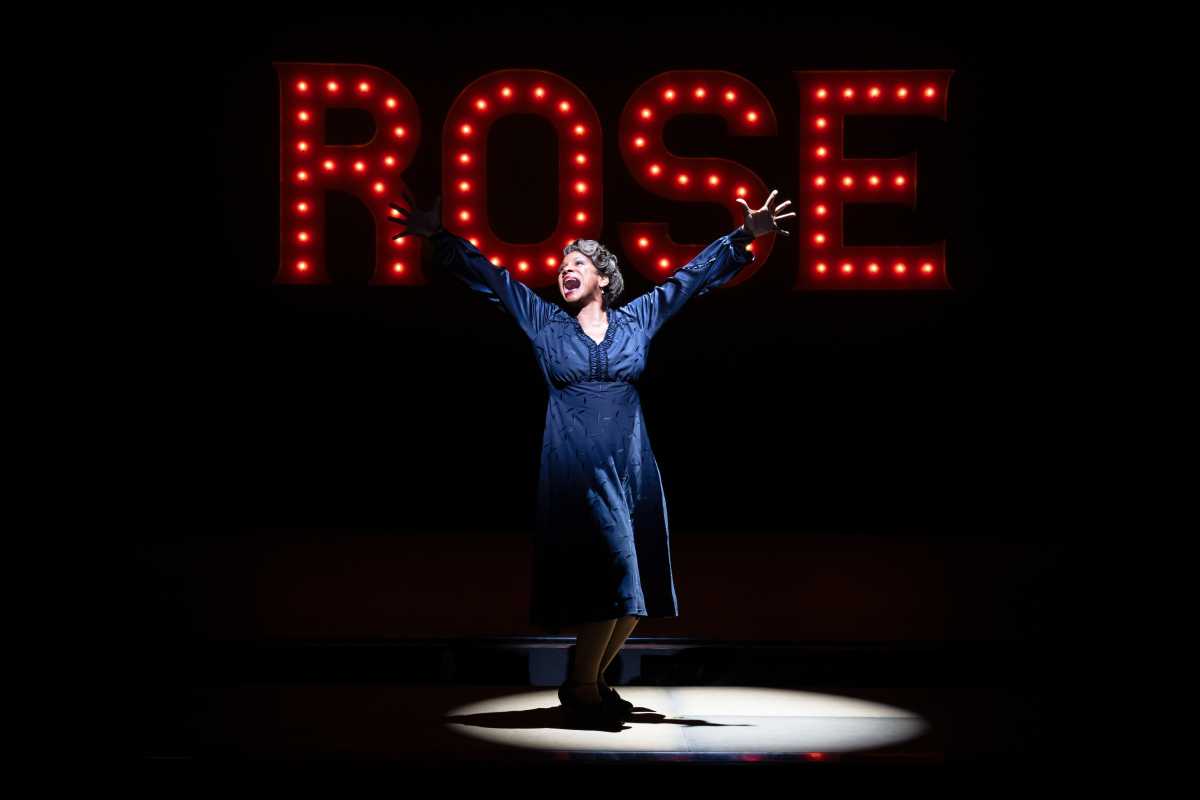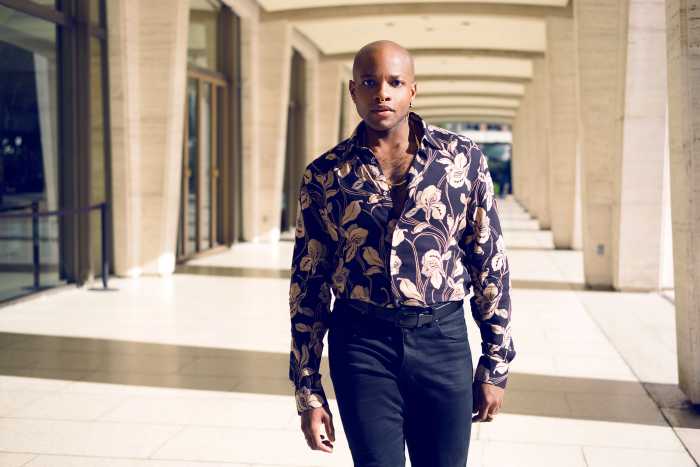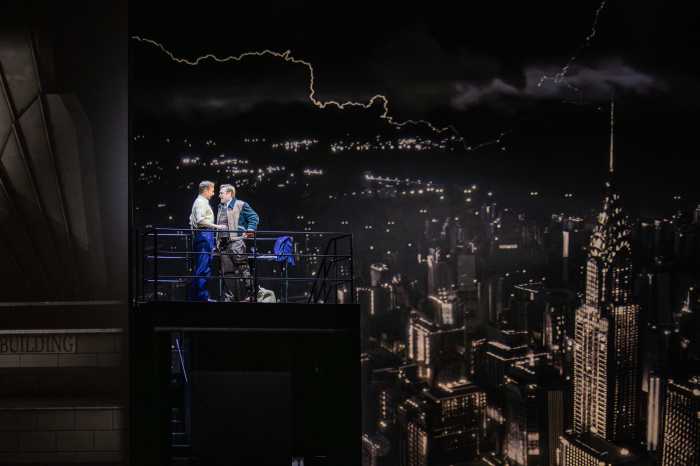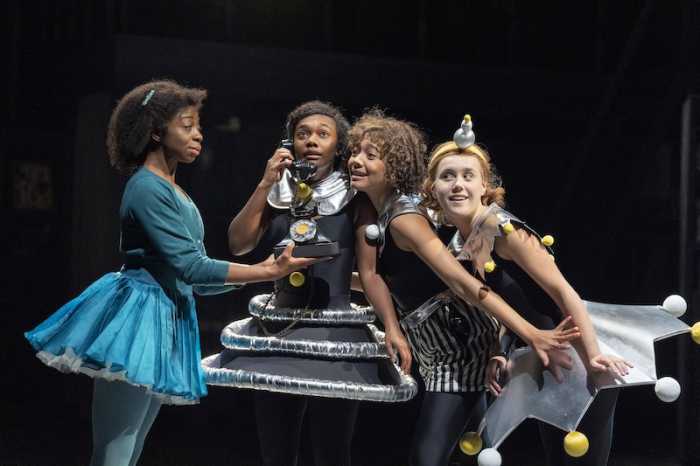“Gypsy” is back on Broadway — for the fifth time since its original outing in 1959 — and in this new production, what is often considered the best American musical ever shines with all the requisite dazzle and acquires a depth and complexity of the finest diamonds — a spectacular ornament for the current Broadway season.
Directed by George C. Wolfe and starring Audra McDonald in the role of Rose Hovick, the quintessential stage mother, McDonald joins the roster of musical comedy titans who have taken on the role — Ethel Merman, Angela Lansbury, Tyne Daly, Bernadette Peters, and Patti LuPone. Each of them has triumphed in the part, and each of them has brought a unique perspective to this American fable. Rose, living a modest life in Seattle, is determined to make vaudeville stars of her children, June and Louise. Not for them is a humdrum existence, and Rose pushes and pushes, and by sheer force of will, an inexhaustible well of hutzpah, and against all odds gets her kids on the stage—no matter the costs. If the act is weak, she panders with a patriotic display. When June, the original star, runs away to escape, Rose turns to Louise. As vaudeville breathes its last, chance launches Louise into burlesque where the once mousy girl blossoms as the genre’s biggest star: Gypsy Rose Lee. Yet Rose’s tragedy is even that it is never enough. She dreamed for her children because she could not have it for herself — “I was born too soon and started too late,” she laments near the end. Her dream was always out of reach.
McDonald’s performance is amplified by two other elements. This is the first time that Rose and her family have been played by Black actors. Though Wolfe changes none of the book, Rose’s comments that she’s not going to spend her life in service and her promotion of June as lighter-skinned, take on a new poignance just by the simple fact of their existence. That she should be even attempting this in the hardscrabble show circuit of the white-dominated 1930s tells you how ingrained Rose’s passion and determination are. Moreover, when Gypsy emerges as a burlesque star and in her “Garden of Eden” number, the allusion (thanks to Toni-Leslie James’ consistently excellent costumes) to Josephine Baker is unmistakable.
The other is that McDonald has one of the most amazing and versatile voices of any Broadway star of our time, so right from the beginning when Rose sings “Some People,” we know she could have been a huge star… if only. McDonald’s performance, though, is significantly more than bel canto. She imbues Rose with a blinding fire and depth, that perhaps the character can’t fully understand. When she reaches the climax of the show, “Rose’s Turn,” any operatic tendencies take a back seat to the most moving crie de coeur you may ever hear. It tears through the audience with a human force that is awe-inspiring and heartbreaking. (McDonald was one of playwright Terrence McNally’s favorite actresses because of her ability to “stand and deliver,” to be absolutely present to the moment and to fine and express every nuance of the material.)
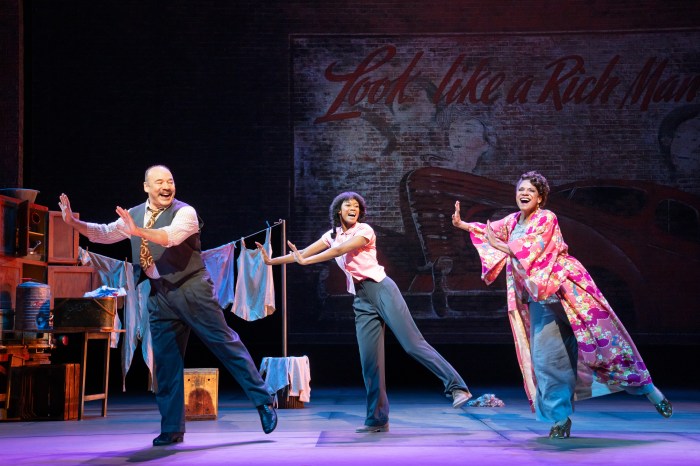
McDonald is surrounded by a superlative cast as well. Danny Brustein, as the long-suffering agent besotted with Rose, tries to humanize and ease the lives of June and Louise — and the troupe that travels with them. He gives a heartfelt performance that warms the stage whenever he’s on.
Jordan Tyson as June obeys, yet chafes under Rose’s domination, finally escaping to find her life. June knows the act is terrible, and she escapes to find her own life. (Which as June Havoc in real life she did, though it wasn’t an easy road.)
Of course, any production of “Gypsy” showcases the second act show stopper “You Gotta Get a Gimmick.” When Herbie books the act into a burlesque theater, three hard-bitten burlesque performers who espouse the idea that you don’t need talent; you need a gimmick to make the strip special. Lesli Margherita, Lili Thomas and Mylinda Hull pull out all the stops, and their louche vulgarity becomes a counterpoint to Gypsy’s gimmick, which becomes to talk to the audience — and juxtapose smarts with stripping.
It is the transformation of Louise into Gypsy that is one of the high points of this production. Joy Woods, in finding her voice, achieves success and ultimately transcends her childhood to become her own woman with a clear-eyed vision of who she is. Unlike some productions where Rose and Gypsy have remained estranged, Gypsy’s realizations open her heart, and she finds the power to forgive.
The production looks and sounds top-notch. Arthur Laurents’ book is arguably one of the best ever written for the musical theater, given its dramatic arc, narrative tightness, and emotional heft. Stephen Sondheim’s lyrics are characteristically sharp, and Jule Styne’s brassy, versatile score has seldom sounded better under the direction of Andy Einhorn conducting a 26-piece orchestra with fully restored orchestrations.
The question that always surrounds a revival, is whether or not it “needs” to be done. In this case, the answer is a resounding yes. This show is classic American literature, the themes of reliance on gimmicks, the drive for attention, and the quest for a dream continue to resonate, and whether met with a success or tragedy, it is an endemic, and unavoidable part of our culture. It’s a heavy legacy, but one we apparently can’t escape.
Gypsy | Majestic Theatre | 245 West 45th Street | Tues, Thurs, Fri 7 p.m.; Weds 2 p.m. & 7:30 p.m.; Sat 2 p.m. & 8 p.m.; Sun 3 p.m. | $69-$421 | Telecharge.com | 3 hours, 1 intermission |

